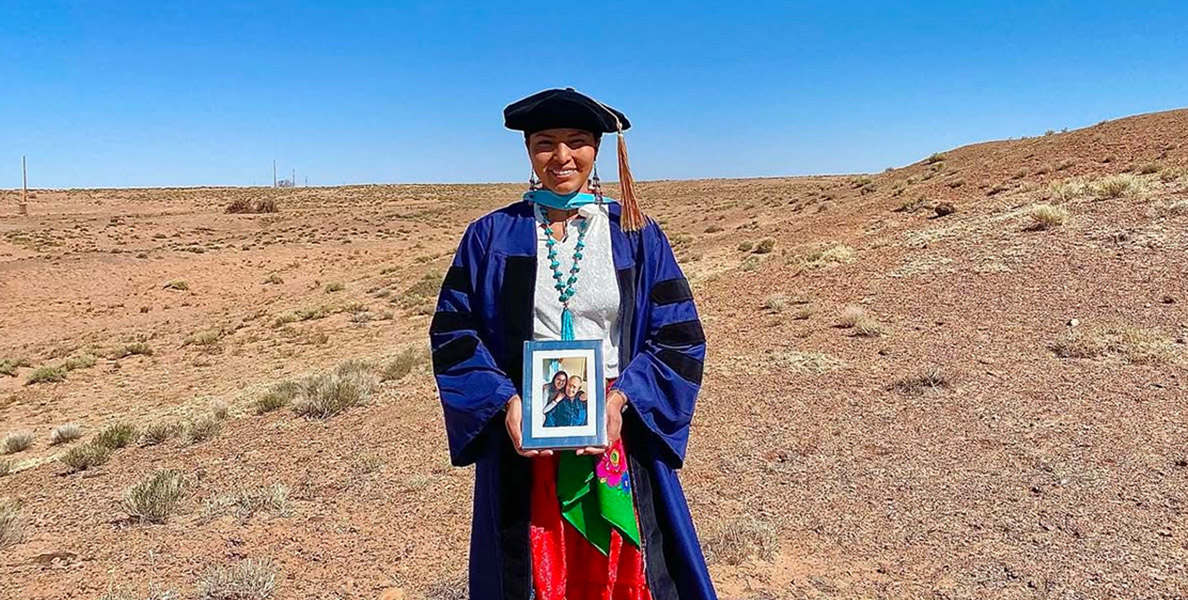Editor’s note: CAP employees have unique backgrounds and experiences, shaping us as an organization and reflecting the diverse communities we serve. March is Women’s History Month and today we celebrate Charlinda Haudley, PhD, who joined CAP in 2023 as a public affairs analyst. CAP delivers more tribal water than any other organization in the United States, and Haudley works to strengthen relationships with Arizona Tribes.
Dr. Charlinda Haudley exudes confidence and a strength of character that is beyond her years, with a smile that lights up the room and an engaging demeanor.
Haudley, a member of the Navajo Nation, gives thanks to her parents’ teachings and the guidance of mentors throughout her life. With a solid foundation of community, culture and connection – fueled by hard work, determination and an internal fire to give back – she has forged her own path, becoming the first in her family to achieve many things. She left the reservation to pursue a higher education, becoming a first-generation student and proudly receiving her Doctorate of Philosophy. She dedicated her degree to her paternal grandfather who passed away due to the COVID-19 pandemic.
For Haudley, her accomplishments aren’t about her. They are milestones that are necessary for her to achieve her ultimate goal – to give back to her community. She believes that when one makes it, we all make it.
“I am a collectivist,” said Haudley. “As Native people, we are taught that you always prioritize the community first. It’s not about you; it’s about other people and you’re raised to always think about other people before yourself.”
Her journey started in Chinle, Ariz., a small town on the Navajo Reservation, where she lived with her parents and three siblings.
“Growing up, my parents hauled water from the nearby wells to drink, to have water to brush our teeth, bathe, clean dishes and feed our horses,” says Haudley. “Gallons of gasoline would be sourced for the generator so we could have light in the house to do our homework or watch TV. When we did not have the generator, we used an oil lamp for light, we chopped wood often to warm the house.”
Bear in mind, the house where she grew up doesn’t have these basic necessities to this day.
She expresses gratitude – for her father finding resources, especially firing up the generator so they could watch a VHS movie, and her mother stressing the importance of school as a path toward a better life. Most importantly, she’s grateful for the deep and profound connection to her community.
“My dad always told me to help other people,” Haudley said. “They don’t need to be your family. If someone comes to you and asks for help, you do what you can to help them. Whether it’s giving them water or giving them the meal you have in the car, you always help out.”
When she graduated from high school in 2009, Haudley moved to Tucson to major in sociology at the University of Arizona, a major chosen because she wanted to help others. She experienced an immediate and profound shock. Haudley grew up around mainly Navajos. Now in an urban area, eight hours away from home, she was surrounded by people who looked different and had dramatically different life experiences. Even living in the Native American dorm brought a new perspective.
“I was surprised to meet Native students from different Tribes, some students were multiracial and intertribal, some grew up on reservation, in border towns or urban areas, and some were from different religions. It’s something I hadn’t been exposed to,” said Haudley.
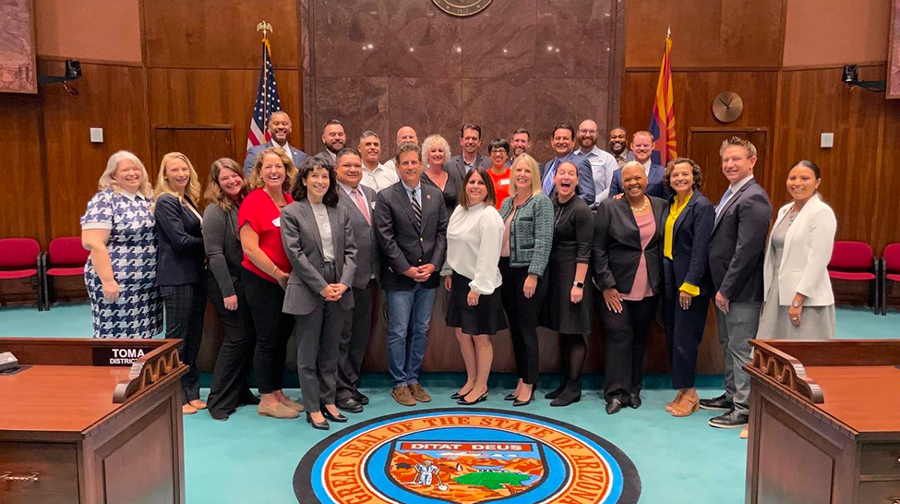
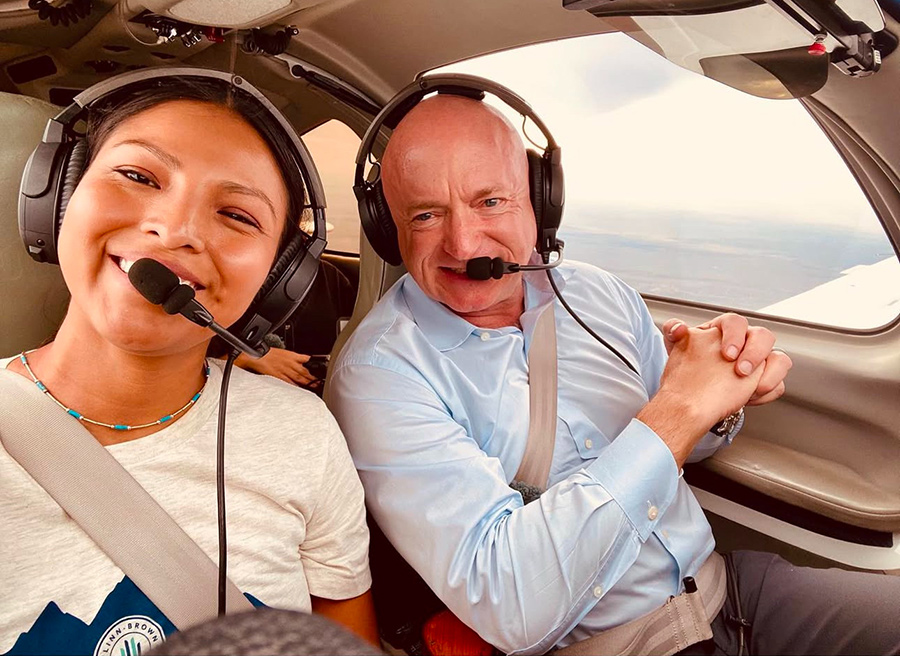
In typical fashion, she jumped in feet first and started to learn everything she could, not only in her classes but in her daily life as well. Haudley embraced new experiences, made friends and built her community. She asked a lot of questions – something her father had always encouraged her to do – and she focused on education and growth.
“In my culture we say T’áá hwó’ ají t’éego and that means ‘It is up to you,’” said Haudley. “You have to do it. You have to have the drive. You have to put your foot forward to make change happen.”
Haudley embraced that outlook and experienced exponential growth in her life. After earning her bachelor of arts degree in 2013, she attended the University of California-Los Angeles where she earned her master’s in one year. During that time, she had a negative interaction with a professor who questioned her academic abilities. This interaction became a life changing experience motivating Haudley to work directly with Native college students.
“I don’t want other Natives to feel the way I did,” said Haudley.
She did just that, returning to Arizona to work in the Office of Student and Cultural Engagement at Arizona State University. She worked full-time and engaged with her community, continuing to attend events, volunteer and learn as much as possible. If an event was free to attend, she attended it. She explored resources that could benefit her and others.
“My dad is currently incarcerated. He did not have access to resources such as an adequate rehab facility, mental health services, or culturally relevant counseling,” said Haudley. “If he’d had these resources, maybe he’d have been able to get help.”
At events, she frequently would take brochures and flyers and save them, hoping that she may be able to share it with someone else to connect them to a resource — to give back to her community.
At one conference, she felt connected to the speaker’s message about diversity and inclusion and spoke with him after his presentation. She later found herself reconnecting with him and pursuing a new job at the University of Arizona (U of A) where she could get a doctoral degree. She headed back to Tucson and started working full-time at the U of A’s Office of Diversity & Inclusion. In four years, she received her PhD with research focused on Native identity.
From her own experience and working with Tribal communities, Haudley wanted to honor the diverse stories of Tribal members. Her doctorate gave a platform for Native American students to share their story.
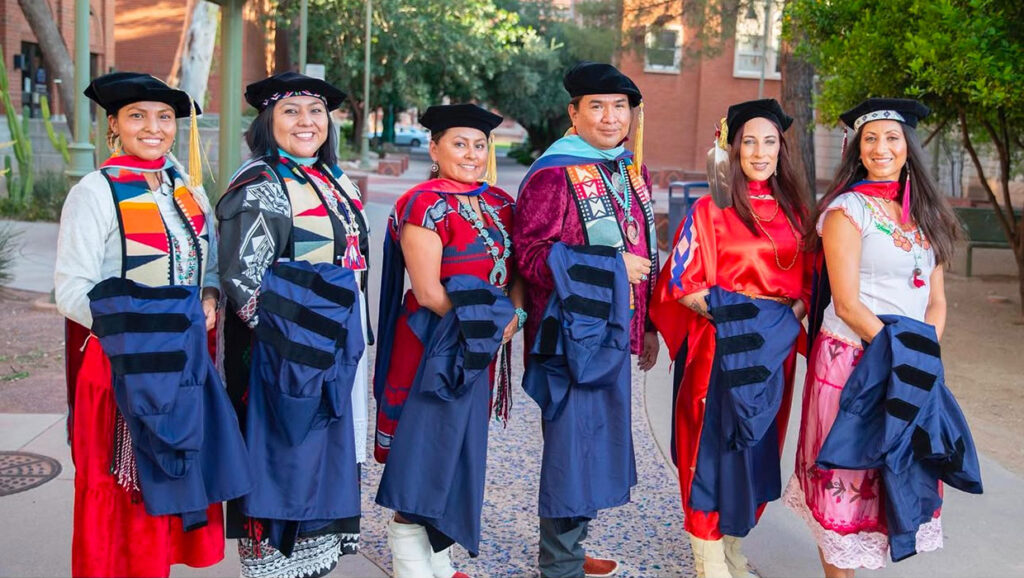
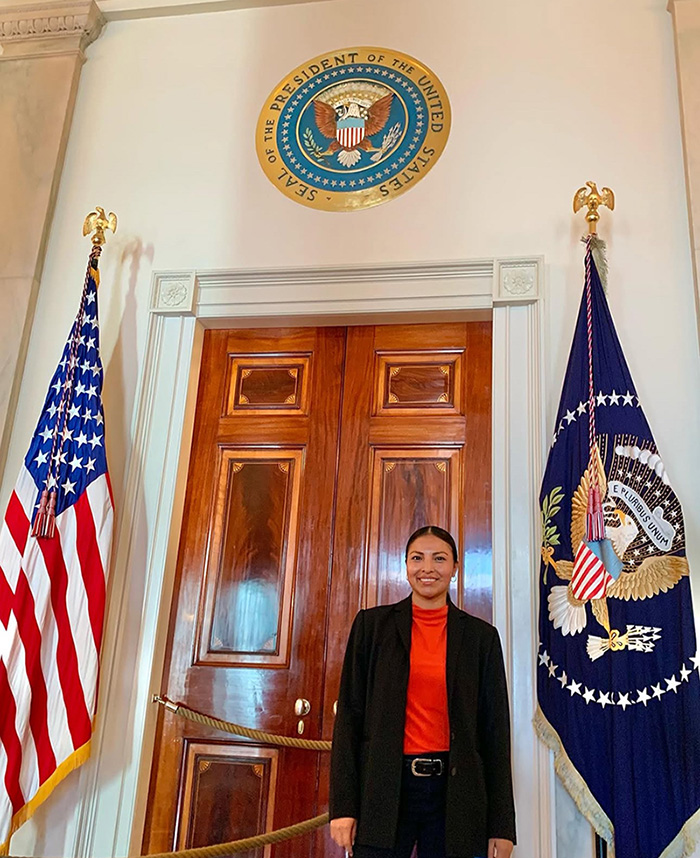
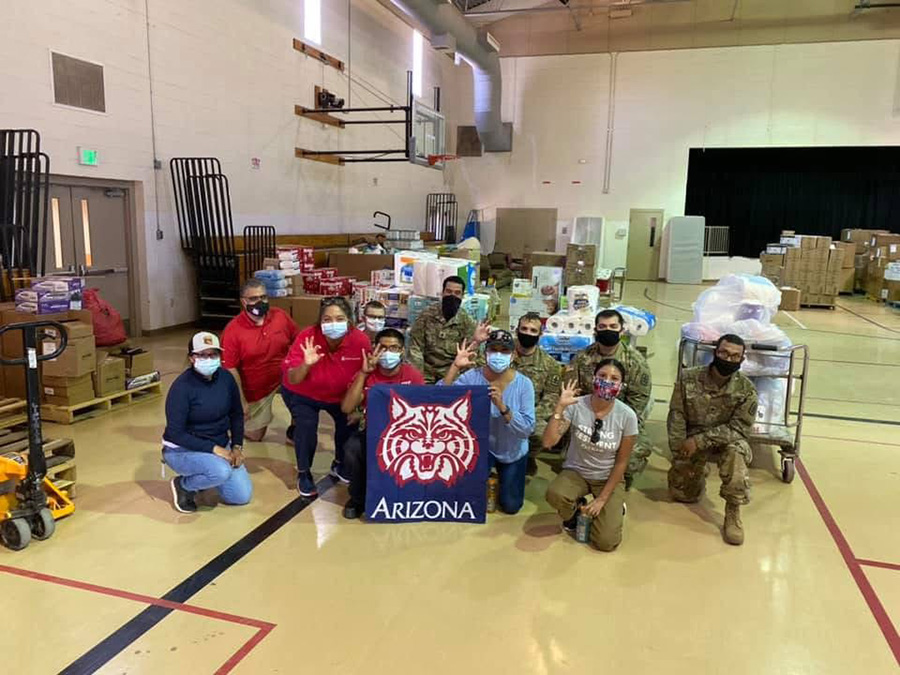
“Every Native has their own story to tell,” she said.
Her doctorate wasn’t the destination for her life; she had more to do. T’áá hwó’ ají t’éego
Haudley knew she could be a voice for her community, and she wanted a seat at the table. She started working for Senator Mark Kelly, attending events, building her network and impacting various communities. She volunteered with charities, embraced every opportunity she could and focused on connections and conversations with nearly everyone she met.
Haudley served on multiple boards, including U of A’s Native American Advisory Council, Greater Tucson Leadership, and the Tucson Metro Chamber’s Emerging Leaders Council. She also continues to find avenues to participate in the Flinn Brown Academy and the American Indian Alumni Association. When she looked around the room, she often was the only Native … or the only woman … or the youngest. She knew she was in the right place.
When she was offered the position at CAP, Haudley took some time to consider it, recognizing the importance of it to her community, CAP and the state.
“I talked to a lot of elders about whether I should take it. As a Native person, water is life so it’s not just a paycheck or just a job,” said Haudley.
Haudley continues to do just that. She meets with Tribal communities, connects with people, shares deep conversations and spreads resources. She feels and expresses gratitude for even the simple things in life like food and shelter, a reliable vehicle, the ability to walk outside to enjoy a sunrise or sunset. She shares her outlook with everyone who will listen and positively impacts everyone in her life.
“Ultimately, I knew it was my opportunity to have a seat at the table, advocate for my community and help everyone understand the Native perspective,” said Haudley.
KRA: Workforce
Being a premier employer that attracts and retains an exceptional and diverse workforce


